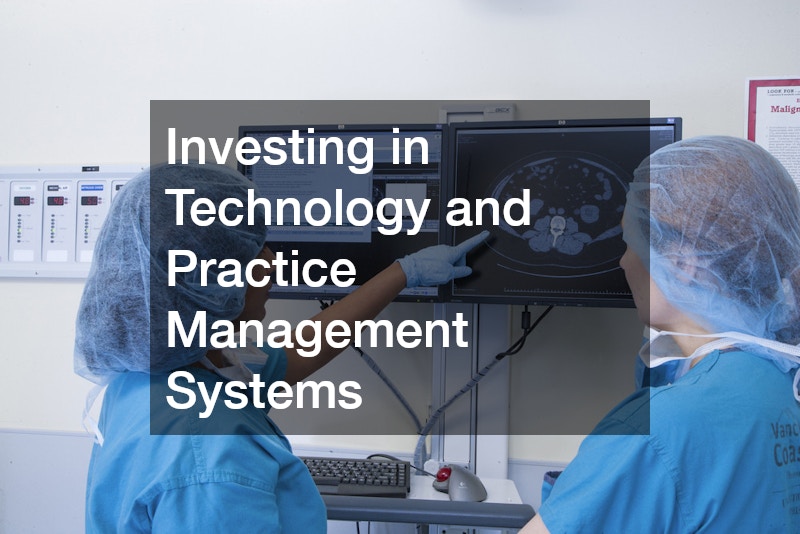Building a successful independent medical practice is a dream for many physicians who want to combine clinical excellence with professional autonomy. While the journey may seem daunting, proper planning and strategic decision-making can turn that dream into a sustainable and rewarding reality. Becoming an MD opens the door to countless possibilities, but transforming that degree into a thriving private practice requires more than medical expertise—it demands a deep understanding of business operations, patient care strategies, and long-term growth planning. Each step, from selecting your location to defining your mission, plays a critical role in shaping your success.
Launching your own practice is not simply about treating patients; it’s about creating a space that reflects your values, professionalism, and commitment to the community you serve. To do this effectively, you’ll need to think strategically about your goals, resources, and systems. By focusing on efficiency, patient experience, and financial stability, you can create a foundation that allows your practice to thrive for years to come. Understanding these key elements early in the process ensures you’ll be better equipped to manage the challenges and opportunities that come with operating an independent medical office.
Defining Your Vision and Medical Mission
Before opening your doors, it’s essential to define what kind of practice you want to build. Your vision will serve as your compass, guiding every decision you make—from the types of patients you serve to the treatments and technologies you offer. A clear mission statement not only gives your practice purpose but also helps you communicate your values to both patients and staff. It defines what sets your practice apart and ensures that every aspect of your business aligns with your professional philosophy. By developing a strong sense of purpose early on, you create a roadmap for consistent growth and patient satisfaction.
This process should also include considering how your physical space will reflect that vision. Elements like medical office design play a major role in shaping the patient experience. A comfortable, well-organized, and modern office layout can enhance efficiency, improve workflow, and foster trust between you and your patients. When your physical environment mirrors your mission—whether it emphasizes innovation, compassion, or personalized care—it strengthens your brand and builds long-term credibility. Thoughtful design choices communicate professionalism and can make a lasting impression on every patient who walks through your doors.
Choosing the Right Location for Your Practice
Location is one of the most critical decisions when building an independent practice. The right setting can significantly impact patient accessibility, visibility, and long-term success. Factors such as nearby hospitals, local demographics, and competition from other practices should be carefully evaluated before making your decision. You’ll also want to consider convenience—both for patients and staff—by ensuring your office is easy to reach and has adequate parking or public transportation options. Choosing a strategic location can make your practice more appealing and set the stage for steady growth.
Once you’ve identified a suitable area, it’s important to plan how you’ll maintain efficiency and organization as you begin operations. This includes implementing systems that support day-to-day operations, such as patient scheduling, billing, and inventory management. For example, medical inventory tracking can help prevent supply shortages and reduce waste, allowing you to focus more time on patient care. Efficiently managing resources ensures your practice runs smoothly and positions your business for success from the very start.
Developing a Comprehensive Business Plan
Every successful independent practice begins with a solid business plan. This document serves as your blueprint, outlining your objectives, financial projections, marketing strategy, and operational processes. For physicians, this step is especially important because it bridges the gap between medical expertise and business ownership. A well-developed business plan clarifies your vision, helps you set realistic goals, and provides a foundation for decision-making. It also ensures that you’re prepared for challenges such as competition, cash flow management, and regulatory compliance. Taking the time to plan every detail early can prevent costly missteps later.
In addition to outlining your services and financial strategy, a thorough plan should also include details on how you’ll maintain compliance with health and safety standards. This might include protocols for medical sharps disposal, patient privacy, and infection control. Establishing these systems before opening your doors ensures your practice will run smoothly and meet legal requirements. By treating your business plan as both a strategic roadmap and a compliance guide, you’ll be setting your practice up for sustainable growth while maintaining a safe and professional environment for your staff and patients.
Securing Financing and Managing Startup Costs
Funding is one of the biggest hurdles new physicians face when starting an independent practice. Between leasing or purchasing office space, hiring staff, and acquiring medical equipment, startup costs can quickly add up. That’s why it’s crucial to research all your financing options early, including business loans, grants, and private investors. Understanding the full financial picture allows you to make informed decisions about budgeting and long-term sustainability. A solid financial foundation gives you confidence and flexibility as your practice grows.
For those becoming an MD and transitioning into private practice, partnering with a software solutions company can make financial management far more efficient. These companies provide tools that simplify billing, automate accounting processes, and track key performance indicators—all of which are vital for maintaining profitability. With modern software solutions, you can reduce administrative burdens and gain greater visibility into your cash flow. Smart financial management early on ensures that your practice remains stable even as it expands.
Obtaining Licenses, Permits, and Certifications
Before you can legally operate your medical practice, you’ll need to secure the proper licenses, permits, and certifications. This includes your state medical license, DEA registration, business license, and other documentation required by local and federal agencies. The process can be time-consuming, but it’s an essential part of ensuring that your practice is compliant and trustworthy. Staying organized throughout this stage will save you time and help prevent delays in opening your doors. It also demonstrates your professionalism to patients, insurers, and partners.
Once the legal paperwork is in place after becoming an MD, consider how your office’s security systems will protect your patients’ privacy and assets. Investing in access control installation allows you to manage who can enter restricted areas, such as rooms containing patient records or pharmaceuticals. These systems enhance safety, prevent unauthorized access, and ensure compliance with privacy regulations. Combining regulatory diligence with strong security measures creates a reliable foundation for your practice and reinforces your commitment to patient confidentiality and care quality.
Building a Skilled and Reliable Support Team
No independent medical practice can succeed without the right team behind it. While becoming an MD equips you with clinical expertise, running a practice requires support from qualified administrative, nursing, and managerial staff. Hiring team members who share your values and dedication to patient care is essential for creating a positive environment where both employees and patients thrive. A cohesive, motivated team also helps maintain smooth day-to-day operations, ensuring that every patient receives consistent, high-quality service.
Beyond hiring, it’s important to invest in training and maintaining a professional workspace. An overlooked but essential part of running a smooth operation is partnering with an office cleaning service to ensure the environment is always sanitary and welcoming. A clean, well-maintained office not only meets health standards but also reinforces the professionalism of your practice. Patients notice these details, and a spotless environment can greatly influence their comfort and trust. By building a dependable team and keeping your workplace organized and hygienic, you establish a foundation of excellence that supports long-term success.
Investing in Technology and Practice Management Systems
In today’s healthcare environment, technology is a cornerstone of efficiency, accuracy, and growth. Modern practice management systems can simplify scheduling, billing, and patient communications—all while reducing human error. For physicians becoming an MD and starting an independent practice, integrating digital tools early helps streamline operations and allows you to focus on patient care instead of paperwork. Technology also enhances the patient experience by offering conveniences such as online booking, digital records, and automated reminders.
It’s equally important to ensure that the financial side of your practice is organized and compliant. Implementing robust accounting systems keeps your financial data accurate, secure, and transparent. Digital accounting tools can help track expenses, manage payroll, and ensure timely tax filings, all while minimizing administrative stress. Combining technological investments with sound financial management sets the stage for steady growth and allows your practice to operate efficiently and profitably.
Establishing Strong Patient Relationships and Trust
Patient relationships are the heart of any successful medical practice. Building trust requires more than excellent medical care—it also depends on communication, empathy, and reliability. Patients who feel respected and heard are more likely to stay loyal and refer others to your practice. Establishing consistent follow-up systems, maintaining transparent communication, and creating a welcoming environment all contribute to patient satisfaction. When your patients feel valued, your reputation and patient base will naturally grow over time.
Safety and comfort also play a major role in building trust when becoming an MD. For example, ensuring that your office is properly equipped with emergency lighting can create a sense of reassurance for both patients and staff. This detail not only meets safety regulations but also demonstrates your commitment to preparedness and professionalism. By combining compassionate care with a well-maintained, safe environment, you strengthen the foundation of long-term patient relationships that will sustain your practice for years to come.
Marketing Your Practice Effectively in the Community
Even the most skilled physician can struggle to grow an independent practice without proper marketing. Establishing a presence in your community is essential for attracting new patients and building credibility. Marketing for medical practices should focus on trust, expertise, and accessibility rather than aggressive sales tactics. A strong online presence—including a professional website, accurate business listings, and active social media profiles—helps prospective patients find you easily and learn about your services. Combining digital outreach with community involvement, such as health fairs or partnerships with local organizations, further strengthens your reputation.
In addition to promoting your services, protecting patient information should remain a top priority. For instance, working with data destruction services ensures that outdated or sensitive files are disposed of securely and in compliance with privacy laws. This attention to detail not only safeguards confidential information but also reinforces your professionalism in the eyes of your patients. By maintaining high ethical standards and a proactive marketing approach, you can grow your patient base while building trust and credibility throughout your community.
Continuing Education and Adapting for Long-Term Success
The medical field is constantly evolving, and staying current is critical for maintaining a thriving practice. As part of becoming an MD and running your own business, continuing education ensures that you remain at the forefront of advancements in medicine, technology, and patient care. Attending conferences, joining professional associations, and completing additional certifications help you stay informed about the latest industry trends. Lifelong learning not only enhances your clinical expertise but also allows you to provide better care and adapt to the changing needs of your patients.
In addition to clinical development, staying up-to-date with your facility’s infrastructure is equally important. Partnering with professionals who offer electrical panel services ensures that your office remains safe, compliant, and efficient. Regular maintenance of your electrical systems supports critical equipment, prevents power failures, and keeps your practice running smoothly. Balancing continued learning with responsible facility management demonstrates your commitment to excellence in every aspect of your business.
Becoming an MD and launching an independent practice is one of the most fulfilling paths a physician can take—but it requires more than medical expertise. Success comes from blending clinical skill with strategic planning, strong leadership, and attention to every operational detail. By developing a clear mission, choosing the right location, building a strong support team, and investing in reliable technology, you lay the groundwork for a thriving practice. Every decision, from financial management to patient care, contributes to your reputation and long-term sustainability.
Beyond the basics of running a business and becoming an MD, successful physicians also recognize the importance of adaptability and community engagement. Staying active in your local area, maintaining a secure and professional environment, and continuing your education are all key to building a respected and trusted brand. These factors don’t just help your practice grow—they help you become a valued healthcare leader who makes a lasting impact on patients’ lives.
Ultimately, becoming an MD and starting your own medical practice is about balance: balancing care with efficiency, ambition with compassion, and innovation with ethics. With preparation, the right partnerships, and a commitment to continuous improvement, your independent practice can become not only a symbol of professional achievement but also a cornerstone of your community’s health and well-being.




